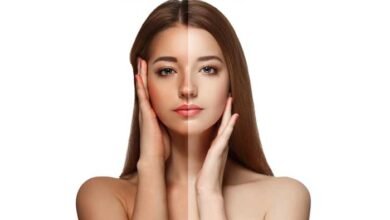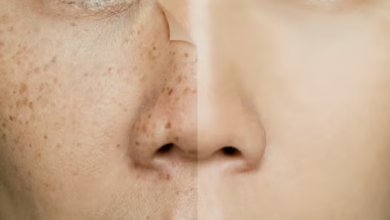How Air Pollution Affects Eye Health – Protect Your Eyes with These Simple Tips
- Air pollution doesn’t just impact breathing or skin health but also takes a toll on eye health. Constant exposure to polluted air containing dust, smoke, and harmful chemicals can result in eye dryness, infections, and long-term complications if not addressed. Let’s explore simple ways to protect your eyes from pollution and maintain clear, healthy vision.
1. Wear Sunglasses or Anti-Pollution Glasses Outdoors
Sunglasses act as a protective barrier, preventing pollutants and UV rays from irritating your eyes. When you venture outside, particularly in urban or high-traffic areas, wearing polarized sunglasses or anti-pollution glasses offers extra defense by blocking dust, debris, and airborne chemicals. Anti-pollution glasses are designed to minimize exposure to microscopic pollutants that may enter your eyes unnoticed, especially on windy days.
2. Keep Your Eyes Hydrated with Eye Drops
Dryness is one of the most common issues caused by polluted air. Lubricating eye drops or artificial tears help keep your eyes moist, preventing irritation and itchiness. Hydration doesn’t stop with eye drops—drink at least 8 glasses of water daily to maintain your body’s fluid balance, ensuring your tear ducts function optimally. Proper hydration strengthens the tear film, the protective layer on your eyes, making them less prone to dryness and redness.
3. Avoid Touching or Rubbing Your Eyes
Touching or rubbing your eyes can spread bacteria and dust particles, increasing the risk of infections. If your eyes feel irritated or itchy, avoid rubbing them. Instead, rinse them gently with clean water to remove any foreign particles. Always wash your hands before applying eye drops or lenses to reduce contamination risk.
4. Practice Proper Eye Hygiene
Maintaining hygiene plays a crucial role in eye care. Wash your hands frequently and avoid touching your face or eyes during the day. If you wear glasses or contact lenses, ensure they are cleaned regularly to prevent the buildup of dirt and dust. Use mild soap to wash your face at the end of the day to remove pollutants that accumulate on the skin around your eyes.
5. Minimize Outdoor Activities During High Pollution Levels
Air quality fluctuates throughout the day, with pollution levels usually peaking in the mornings and late evenings. To protect your eyes, limit outdoor exposure during these hours or wear protective glasses when stepping out. Track air quality indexes (AQI) through weather apps and plan your outdoor activities accordingly. This helps you avoid unnecessary exposure to smog, dust, and airborne chemicals.
6. Use Air Purifiers to Improve Indoor Air Quality
Many people assume staying indoors eliminates the risk of exposure to pollutants, but indoor air can be just as harmful. Air purifiers equipped with HEPA filters effectively remove dust, pollen, and other pollutants from the air inside your home. On days when the outdoor AQI is poor, keep your windows and doors shut to prevent polluted air from entering your living space. Improving indoor air quality helps reduce dry eyes and allergic reactions.
7. Blink Often While Using Screens
Excessive screen time can exacerbate eye dryness, a condition worsened by pollution. When working on computers, phones, or tablets, we tend to blink less often, leading to dry eyes. Make a conscious effort to blink frequently to keep your eyes moisturized. Follow the 20-20-20 rule—every 20 minutes, look at something 20 feet away for at least 20 seconds. This simple practice reduces eye strain and keeps your eyes comfortable.
8. Eat Foods Rich in Eye-Healthy Nutrients
What you eat significantly impacts your eye health. Foods rich in vitamin A, lutein, omega-3 fatty acids, and antioxidants provide essential nutrients that protect your eyes from pollution damage. Add carrots, spinach, broccoli, citrus fruits, and fish like salmon to your diet to boost vision health. Omega-3 fatty acids, found in fish and walnuts, help prevent dry eyes and maintain moisture in your tear glands.



